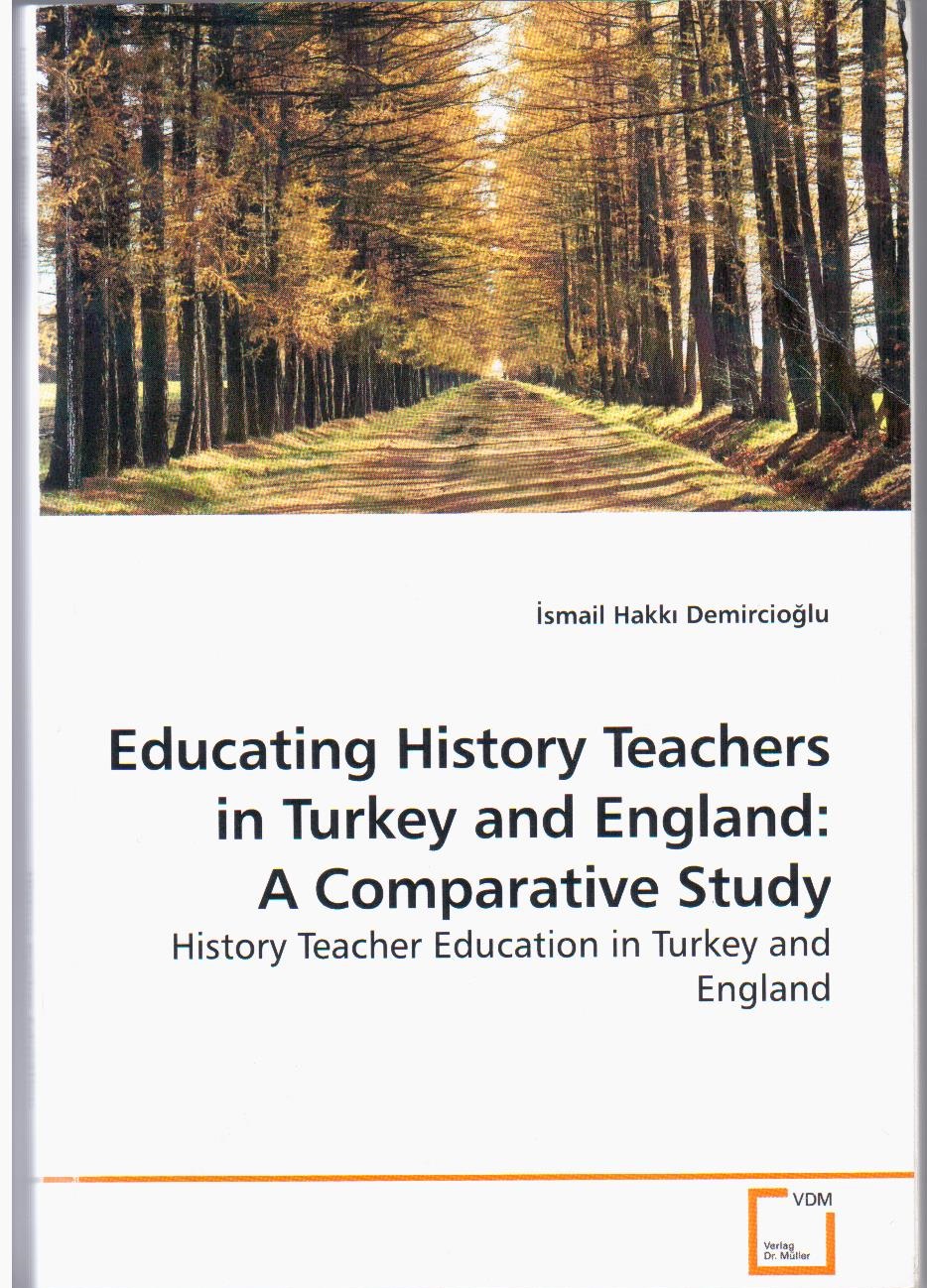History Education in Turkey (Ismail H. Demircioglu)

I have been involved in history education as a history teacher educator and researcher for more than15 years. I completed my PhD in history teacher education in Birmingham, UK, and conduct research on history education, teacher education and social studies education in Turkey. I have also been involved in international projects regarding heritage education, popular history magazines and teaching the Cold War. Besides this, I have written books in Turkish and English, published articles, presented papers at international conferences, organized national and international conferences and am currently responsible for educating secondary school history student teachers at my university.
I have done research in different fields of history education in Turkey, including the history of history education, history teacher education, history textbooks, and peace education. My research shows that history education in Turkey, which dates back to 1869 in public schools, has undergone important changes over time. In particular, after World War I, Kemal Ataturk, the founder of modern Turkey, set up a secular nation-state in 1923. History and history education were given great attention during the era of Ataturk (1923-1938). He believed that history education was an important instrument in creating a modern and secular nation-state. History education was seen as a tool for transmitting Turkish identity within Turkish society. In other words, it was used for nation building. The identity transmitting nature of history education continued until the early 2000s when there was a break in history teaching policy to some extent. A main reason for this break was the desire to join the European Union.
 In the past decade there has been curriculum reform in Turkey in history education and the other core curriculum subjects, at primary and secondary levels. The rationale behind this change was to integrate developments in education that were taking place in the modern world. Before these changes, history education in Turkish secondary schools was criticized because, according to some scholars, courses required students to learn just names, dates and events. This focus on memorization led to a neglect of higher-order thinking. This was seen as an obstacle to Turkish society becoming a part of the modern world. There was also pressure from the European Union for Turkey to reform education and other fields. These combined factors led to changes in history education as well as other subject areas.
In the past decade there has been curriculum reform in Turkey in history education and the other core curriculum subjects, at primary and secondary levels. The rationale behind this change was to integrate developments in education that were taking place in the modern world. Before these changes, history education in Turkish secondary schools was criticized because, according to some scholars, courses required students to learn just names, dates and events. This focus on memorization led to a neglect of higher-order thinking. This was seen as an obstacle to Turkish society becoming a part of the modern world. There was also pressure from the European Union for Turkey to reform education and other fields. These combined factors led to changes in history education as well as other subject areas.
Although there have been some positive changes in terms of history education in Turkey, there are still important obstacles. My research indicates that there has been a decline in the quality of history teacher education since 2010 because of poorly structured educational programs. Besides this, it seems that history student teachers are not given adequate support by experienced history teacher mentors during their practical teaching experiences. Secondly, some secondary history teachers use outdated teaching approaches, mainly ‘talk and chalk,’ which do not foster students’ higher-order thinking skills. These teachers also do not have adequate skills for measurement and evaluation. In looking at history exams, it appears that teachers often develop questions based on Bloom’s Taxonomy of knowledge and comprehension levels. Thirdly, although recent Turkish history textbooks are better than the previous, they still have some deficiencies. Some of the images are not clear and some are not directly related to the content. In addition, history textbooks are written from a male-dominant perspective where women and children are not adequately represented. Furthermore, history textbooks do not foster higher-order thinking skills and do not include contemporary history. Finally, my research indicates that history education in Turkey does not foster tolerance, respect for human rights, or democracy at the desired level, all of which are crucial in a democratic society.
- Se connecter ou créer un compte pour soumettre des commentaires
- Français

